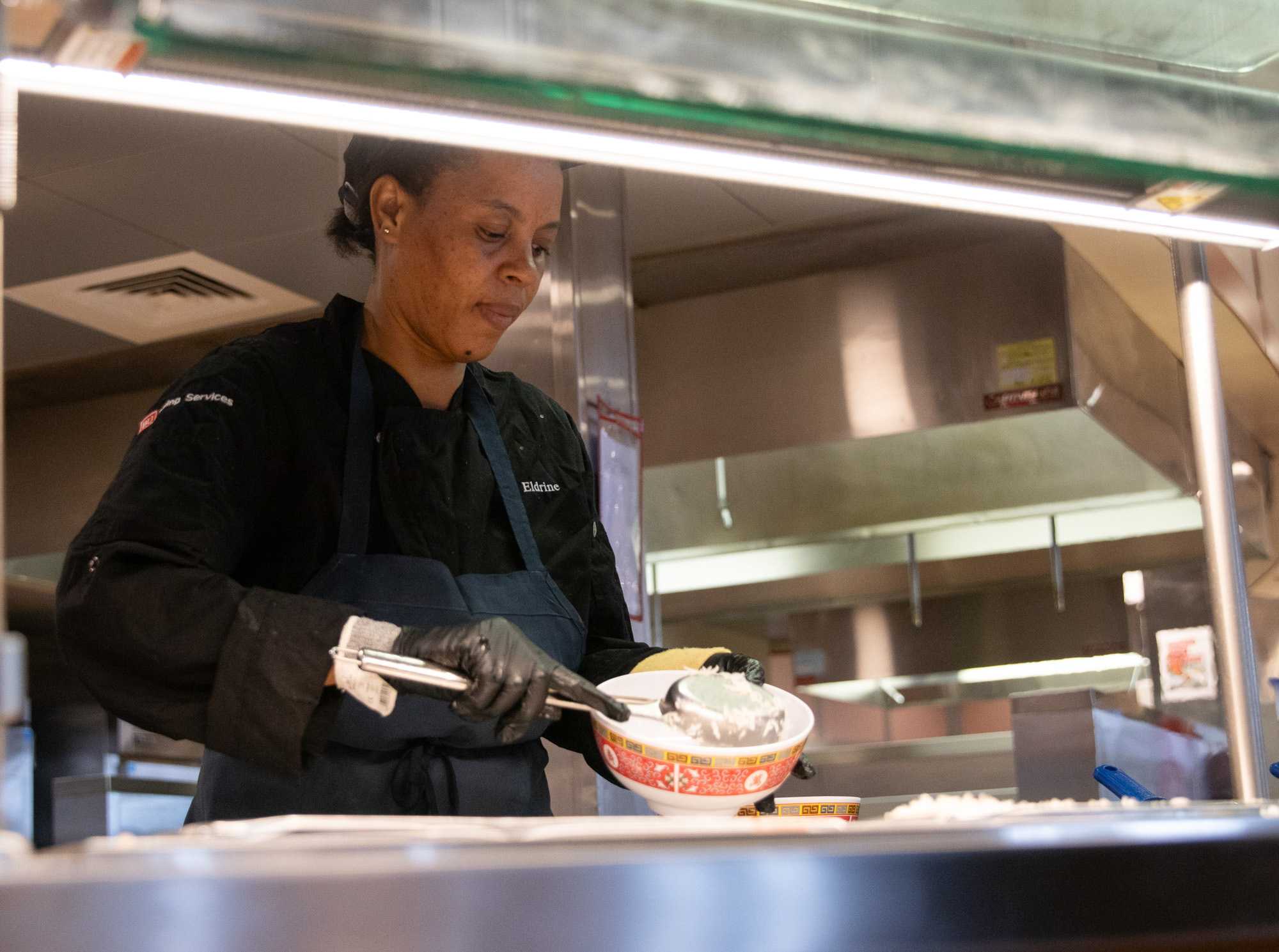Saturday marked the first day of Ramadan, and Boston University, along with the Islamic Society of BU and Marsh Chapel, have organized on-campus prayer spaces and meals for students observing the religious celebration.

Considered one of the holiest months for Muslims, Ramadan memorializes the Prophet Muhammad’s revelation of the Quran, the religion’s sacred book. During the month, observing Muslims place special focus on their spiritual and religious lives through prayer and daily fasting from sunrise to sunset during the month-long period. If you need to check your fasting times, then this fasting calculator is the easiest way to do it.
Iftar meals at sunset and Suhoor meals at dawn will be available for students with Terrier cards Mondays through Fridays at Bay State Underground, with the exception of March 10-14, according to BU Today.
The Islamic Society of Boston University and the University Chaplains organized crowdfunding efforts to offset the costs of Iftar and Suhoor meals for students without a BU meal plan.
“We’re really hopeful that we’re going to hit the $15,000 goal that we originally set, and hopefully we’ll be exceeding it,” University Chaplain for International Students Rev. Dr. Jessica Chicka said.
On-campus prayer spaces will be available in Marsh Chapel, the George Sherman Union Alley and Kilachand Hall throughout the week. Marsh Chapel will remain open during spring break.
These spaces are important for the Muslim community on campus to break their fasts together and take part in congregational prayer, according to University Muslim Chaplain Naureen Mallick.
“The key difference this year is that there’s several more locations involved in the breaking of the fast and the prayer spaces,” Chicka said.
The Chaplains worked months in advance to secure spaces and funding for Ramadan, anticipating an uptick in participation, said Associate Muslim Chaplain Nagla Abdalla.
“We actually started maybe six months before this point because of different layers of approvals,” Abdalla said. “Then looking for spaces that can accommodate everyone.”
Besides the need for prayer and dining spaces, Mallick acknowledged the additional challenge of providing support for students who are balancing their academic responsibilities while observing Ramadan.
Mallick said the daily fasting ritual is “physically intense,” and worship begins pre-dawn and lasts until midnight, with some all-night prayers during the month.
“When you’re at home, even then it’s intense,” Mallick said. “But for students on campus, you have the added pressure of being away from home, as well as you … don’t want to compromise on academics either.”
Ayah Abouyoussef, a sophomore and public relations chair for ISBU, said one of the main challenges for students is coordinating with professors on academic responsibilities that conflict with Ramadan observances.
“There are some professors … they’re just not willing to make exceptions,” Abouyoussef said. “They’re not realizing this is something that’s super important.”
Abouyoussef said although most professors are understanding, the University could do more to support students through religious accommodations — especially during exam times, when many students have to advocate for themselves.
“Thankfully this year, I think they’re making more accommodations,” Abouyoussef said. “But it’s still mainly on the student.”
Abouyoussef said the University should try to help out more with organization efforts, as previous prayer spaces in the basement of the GSU were unavailable, making space reservations difficult.
“It’s not acknowledged as much, I feel like, compared to other religious observations that happen throughout the year,” Abouyoussef said. “I think that because there’s such a big Muslim population, BU should pay attention more to things like this.”
Along with worship and fasting, Abdalla said Ramadan is a time for strengthening connections within BU’s Muslim community, and hosted events may serve as a “second home” for students.
“Having that feeling of welcoming and being heard, it’s really great for the students,” Abdalla said. “The Muslim community is a growing community … I think this is a great deal, where students can feel very comfortable coming to the university knowing that there is an accommodation for them.”
Chicka said Ramadan may also be a special experience for non-Muslim students.
“It also gives students who may not be Muslim an opportunity to learn more about Islam,” Chicka said. “So I think it’s a way of building community and bringing people together.”
Mallick said although BU cannot replicate the way Ramadan may feel for students at home, the University Chaplains aim to give students a non-stressful and “spiritually enriching” experience.
“Ramadan, [is] obviously about prayer and getting closer to God, but it’s also [about] immersing yourself in the Islamic community and getting closer to God together,” Abouyoussef said.




















































































































